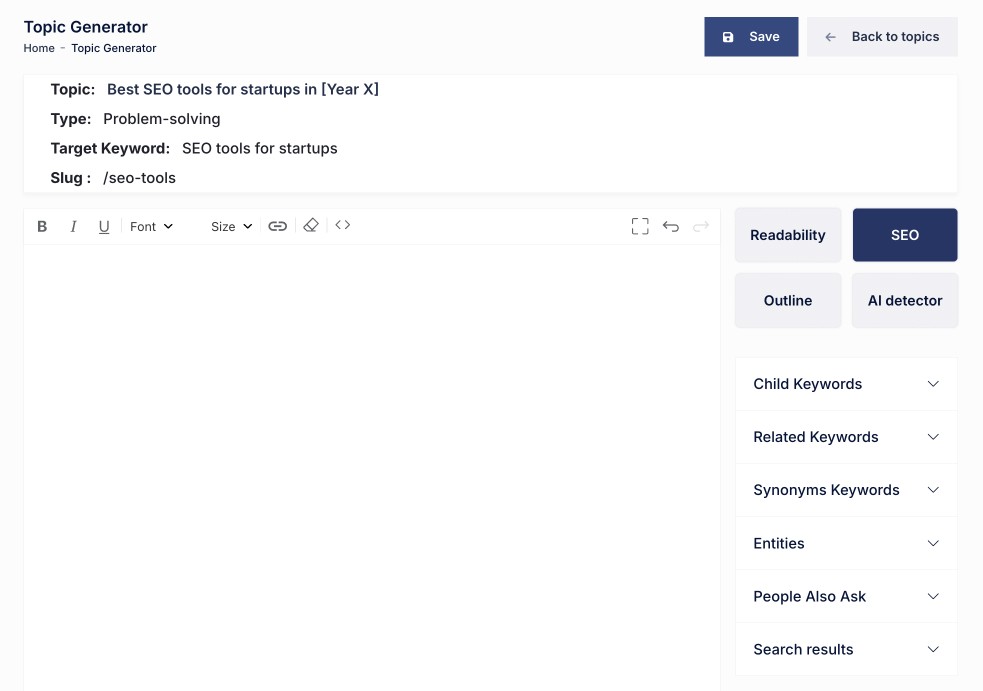Keyword groups
Each time you click the "Generate topics" button on the Topic Generator page, you get five unique blog post titles designed to help you reach your target customers. For each title, you’ll also see a target keyword along with four keyword groups: child keywords, related phrases, synonym keywords, and entities.
Let's understand each group of keyword.
Target keyword
A target keyword is the main keyword or phrase you want your content to rank for in search engines. It represents the primary topic of your content and reflects what users are likely to search for when looking for related information.
The goal is to optimize your content around the target keyword to make it more relevant to search engines. This helps your content rank higher for that specific term.
For example, if you're writing a blog post about yoga for beginners, your target keyword could be "yoga for beginners."
Child keywords
Child keywords are more specific versions of a broader target keyword. They are usually long-tail keywords or phrases that branch off from the main keyword. These keywords help capture more niche or specific search intent.
Child keywords are considered low competition because they are easier to rank for. They often target specific questions or subtopics related to the main keyword, helping improve SEO by reaching different parts of your audience.
For example, if the target keyword is "yoga for beginners," some child keywords might include:
Basic yoga poses for beginners
Yoga for beginners at home
Easy yoga routines for beginners
Morning yoga for beginners
Related phrases
Related phrases are words or expressions that are not direct synonyms of the target keyword but are connected to the main topic. They help cover different aspects or subtopics related to the keyword.
These phrases give search engines more context about the subject, which improves the chances of ranking for a wider range of searches.
For example, if the main topic is "yoga," related phrases might include "breathing exercises," "Ashtanga yoga," "mindfulness practices," "meditation techniques," "Yoga for flexibility," etc.
Synonym keywords
Synonym keywords are words or phrases that have the same or similar meaning as the target keyword but are written differently. They help capture variations in how users search for a topic.
By using synonym keywords in your content, you can increase the chances of ranking for different search queries with the same intent but different wording.
For example, if the target keyword is "yoga classes," some synonym keywords might be "yoga courses," "yoga lessons," "yoga training," "yoga sessions," "yoga instruction," etc.
Entities
Entities are specific concepts or things that search engines recognize. Including entities in your blog post helps search engines link related concepts, classify your content, and match it with relevant search queries.
Why do we suggest these keywords and phrases?
We provide keyword groups to help you create SEO-friendly articles that cover the topic thoroughly, match the searcher's intent, and cater to different stages of the user lifecycle (awareness, engagement, conversion, etc.).
Learn more about:
How to use synonym keywords
How to use entities

